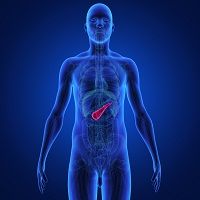Exocrine Pancreatic Function Normal in Fabry Disease Patients
Abdominal complaints are not the result of exocrine pancreatic function in Fabry disease patients, suggests a study by researchers in Slovenia.

Exocrine pancreatic function is normal in all patients with Fabry disease (FD) and is probably not a cause of abdominal complains in this patient population, according to research published in The Central European Journal of Medicine.
Researchers from Slovenia analyzed the medical records of 28 adult patients with FD in order to evaluate whether exocrine pancreatic function is impaired in patients with FD. The medical records were examined for age, gender, first symptoms before confirmation of FD diagnosis, time interval between first symptoms and diagnosis, therapy, and current abdominal complains.
“Most reports of prevalence of gastrointestinal (GI) symptoms among FD patients are based on small cohorts and case reports,” corresponding author Miroslav Vujasinovic, MD, explained to HCPLive.com in an email. “Some of the symptoms of exocrine pancreatic insufficiency (EPI) are also present in patients with FD, especially abdominal pain and flatulence. EPI has not been evaluated before in patients with FD as a possible cause of abdominal complaints.”
Of the 28 patients included in the study (12 male, 16 female), 17 patients were on enzyme replacement therapy (ERT). In a quarter of participants (7 patients), abdominal complains such as diarrhea, bloating, and feeling of satiety were present before the introduction of ERT. The abdominal complains were resolved after the introduction of ERT for 3 out of those 7 patients; for the remaining four patients, they were still “occasionally present,” the researchers wrote.
The investigators performed fecal elastase 1 measurements using enzyme linked immunosorbent assay and the commercial kit ScheBo (Giessen, Germany) on the patients. The test showed normal results for each patient.
“We expected to find EPI at least in a few patients with FD, because disease involves all organic systems. Use of fecal elastase 1 as a diagnostic tool could be a limitation factor in the study owing to its lower sensitivity for mild and moderate EPI, which is a common problem with all non invasive diagnostic methods,” Vujasinovic continued.
It was important to note that there were no naïve male patients included in the study, which could have impacted the results, Vujasinovic noted. Therefore, EPI was not able to be completely ruled out as an etiological factor for GI problems in FD patients. More studies are needed to establish the etiology, especially in naïve males, Vujasinovic said.
“If [physicians] have patient with FD and unexplained GI symptoms, they should think about EPI as a possible cause of their complaints,” Vujasinovic concluded.